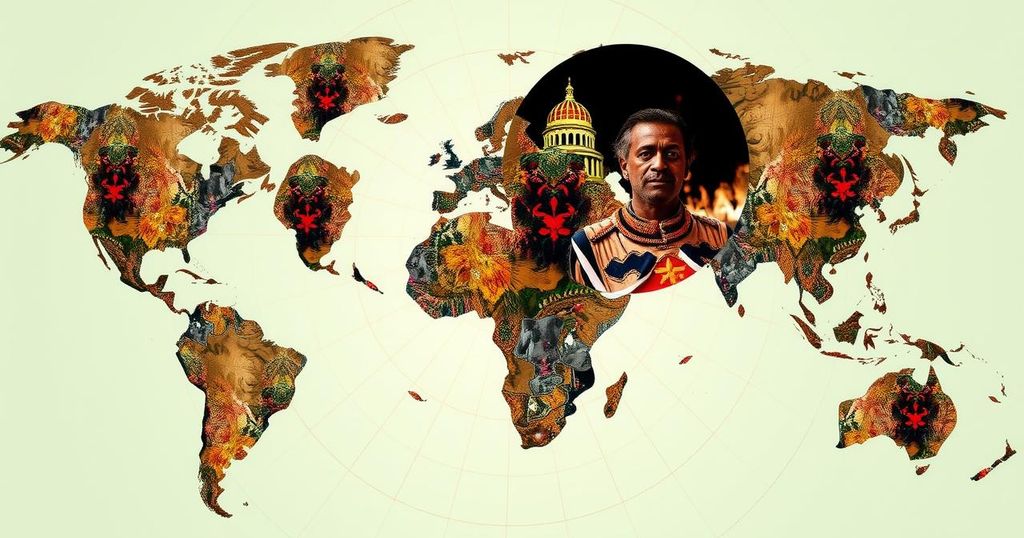Ghana’s Political Shift: John Mahama’s Return to the Presidency

Ghana’s December 7 elections resulted in opposition leader John Mahama reclaiming the presidency, reflecting a global trend towards anti-incumbent sentiment. The ruling NPP, after an eight-year tenure, suffered its worst electoral performance, largely attributed to public dissatisfaction with inflation, illegal gold-mining, and corruption. This victory parallels trends seen in other African nations and signals a shift in the political landscape of Ghana.
On December 7, Ghana witnessed a significant political shift as John Mahama, the former president and opposition candidate, secured victory in the elections, marking a pivotal moment in its democratic landscape. Mahama, who represents the National Democratic Congress (NDC), has a history of competing for the presidency and previously lost to outgoing President Nana Akufo-Addo. His latest triumph against the ruling party’s candidate, Mahamadu Bawumia, signals a change in public sentiment following a dismal performance by the New Patriotic Party (NPP) after eight years in office.
In recent elections globally, numerous opposition parties have emerged victorious, and Ghana’s recent political developments reflect this trend. The year has seen a notable surge in anti-incumbent sentiments throughout Africa, as exemplified by government turnover in Senegal, Mauritius, and Botswana, while established parties in Namibia and South Africa faced reduced majorities. This context highlights Ghana’s elections as part of a broader regional pattern where citizens demand accountability and responsiveness from their leaders.
The electoral defeat of the New Patriotic Party and the subsequent return of John Mahama as president illustrate the evolving dynamics of Ghana’s democracy. The economic challenges, corruption scandals, and environmental issues faced by the ruling party reveal a disconnect with citizens, prompting a decisive shift in voter preferences. This development, while reflecting a broader anti-incumbent wave, underscores the resilience and engagement of Ghana’s electorate.
Original Source: www.worldpoliticsreview.com







